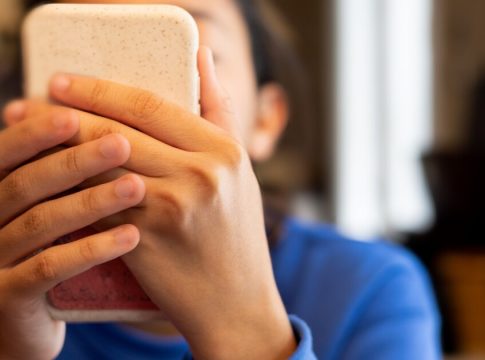Understanding the Link Between Screen Addiction and Mental Health
Recent research has illuminated a troubling connection between screen addiction—specifically to social media, mobile phones, and video games—and an increased risk of suicidal thoughts and behaviors among adolescents. This study, published in JAMA, highlights the importance of understanding how our digital interactions might affect our mental wellness.
Key Findings from the Study
Drawing data from the Adolescent Brain Cognitive Development Study, which tracked over 4,000 children from the ages of 9 to 10, researchers found alarming trends by age 14. Here’s what they discovered:
- Social Media: Approximately one-third of participants reported escalating addiction levels.
- Mobile Phones: About 25% of the children developed an increased reliance on their devices.
- Video Games: Over 40% showed signs of significant addiction.
These addictive behaviors were notably associated with a higher likelihood of experiencing suicidal thoughts and behaviors. Professor Yunyu Xiao, one of the study’s authors, emphasizes that this connection is a critical area of concern, indicating that addiction rather than mere screen time is a more accurate predictor of mental health risks.
The Nature of Addiction
The study employed a standardized questionnaire to assess addiction, asking questions such as:
- “I spend a lot of time thinking about social media apps or planning to use them.”
- “I feel stressed if I am not allowed to use social media.”
These questions allow researchers to track trends over time. They discovered that nearly 60% of children maintained low addiction levels to social media, while a concerning 10% exhibited increasing addiction that peaked during the study.
Suicidal Thoughts and Behaviors
About 18% of participants disclosed having suicidal thoughts, and 5% reported behaviors, including making plans or attempts. Those with high or increasing levels of mobile and social media addiction were two to three times more likely to experience these alarming symptoms.
Rethinking Screen Time
Experts agree that screen time itself isn’t inherently harmful. Rather, it’s crucial to differentiate between healthy use and problematic addiction. Dr. Jason Nagata, a pediatrician specializing in adolescent health, points out that understanding individual usage patterns offers greater clarity than counting hours alone.
Key Considerations:
- Usage Context: Are children engaging in meaningful activities or avoiding real-life interactions through screens?
- Avoidance: Statements indicating that screens are used to escape problems can be a significant red flag for anxiety and depression.
Practical Insights for Parents and Educators
- Be Mindful of Warning Signs: Look for indicators of addiction, such as excessive planning around screen use or emotional distress when denied access.
- Encourage Balanced Use: Foster open conversations about screen habits and help children engage in a variety of activities that promote mental well-being.
- Model Healthy Behavior: Children often mimic adult behavior, so demonstrate balanced engagement with technology.
By nurturing an understanding of how screen usage might affect young people’s mental health, we can create supportive environments that prioritize overall well-being. As we navigate this digital landscape, awareness and compassion can guide us toward healthier interactions with technology.

Covers wellness, nutrition, mental health, and daily life tips.
Bio: Talia brings a background in health journalism and holistic living to help readers live better, one tip at a time.

